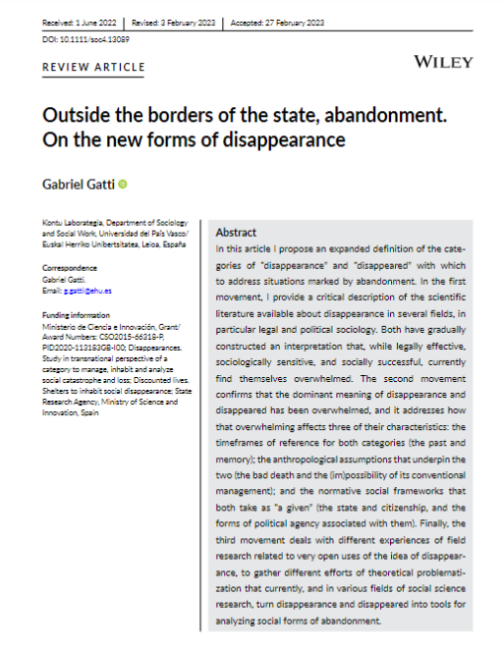
Enforced Disappearance Legal Database
The Enforced Disappearance Legal Database (EDLD) contains the leading jurisprudence, legislation and soft law on the autonomous offence of enforced disappearance as developed by human rights mechanisms around the world. The EDLD seeks to promote understanding of this complex human rights violation and its evolution in international human rights law. It allows users to undertake targeted legal research, comparative jurisdictional analysis and explorative study of the main thematic issues arising under the normative framework of the offence of enforced disappearance.
The EDLD has been developed by the European Human Rights Advocacy Centre (EHRAC) with input from domestic and international legal experts.
Characteristics of enforced disappearances
An enforced disappearance is one of the most serious forms of human rights violations. Enforced Disappearances are defined in the International Convention for the Protection of All Persons from Enforced Disappearance as containing three cumulative elements:
- The arrest, detention, abduction or any other form of deprivation of liberty of a person;
- The involvement of State agents or persons or groups of persons acting with the authorisation, support or acquiescence of the State; and,
- The subsequent refusal to acknowledge the deprivation of liberty or the concealment of the fate or whereabouts of the disappeared person, placing the person outside the protection of the law.
In addition to its stand-alone character, enforced disappearances can affect a number of other fundamental human rights of the disappeared person, namely, the right to security of the person, the right not to be subject to torture or other cruel, inhuman or degrading treatment or punishment, the right not to be arbitrarily deprived of one’s liberty and, in some circumstances, the right to life.
Enforced disappearances are also widely accepted to have a severe impact on the rights of the relatives and loved ones of the disappeared person who are themselves understood to suffer immensely as a result of the disappearance, the devastation of not knowing what happened to their loved one and the burden of continuing the search for them often in the face of great risk and personal cost.
Enforced disappearances are also often used as a strategy to spread terror within a targeted population in an effort to eliminate any form of dissent and, consequently, can affect entire communities and society as a whole. When committed as part of a widespread or systematic attack targeting a civilian population, enforced disappearances can amount to a crime against humanity as defined in international law.






